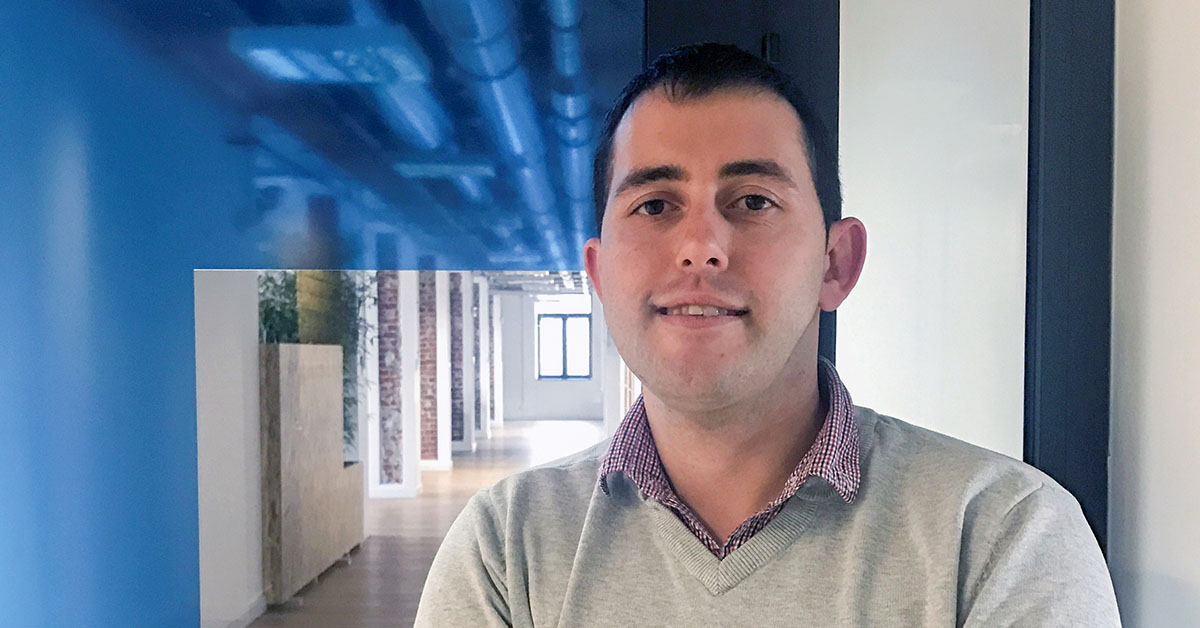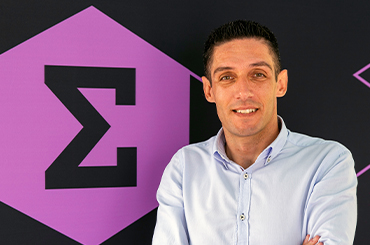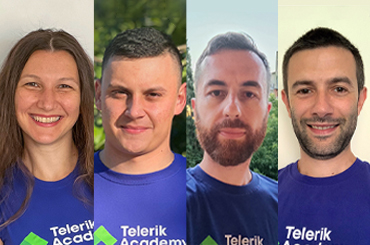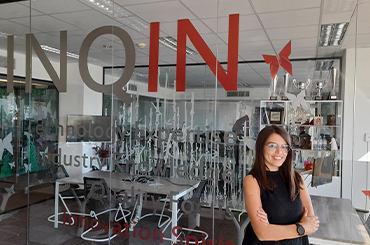There are many ways to learn. You could do it on your own. You could do it together with like-minded people in a group.
Whichever you prefer, it’s essential to keep learning, keep growing. But if you choose the second option, you can do this faster and easier.
Why?
Because you’ll have access to the vast knowledge accumulated through years of real-life, hands-on experience through the lectures of leading professionals.
Just like in the
Telerik Academy Upskill DevOps program!
To learn more about one of those professionals, we talked to Ivaylo Vrabchev, currently Global AWS Lead Architect at SoftwareONE and one of the guest lecturers at Upskill DevOps.

He has a long history of working in the software industry and leading and growing teams. So, if you find the role of a DevOps engineer exciting or are already working as one, you can certainly learn something from him.
And you still have the chance to do it -
you can apply to the program by
11:59 pm on September 25!
Hi Ivaylo, it's great having you! Can you share more about your career path? What do you do now as Head of Professional Services?
Hello, thank you for having me! It all started when I decided to become an IT specialist, but I could also say that the profession chose me.
Since I was a child, I have been genuinely excited about all technologies. Our work is a big part of our life, and I believe a person should be passionate about his work so that they have fun doing it.
The roles I've stepped into over the years range from highly technical to almost entirely managerial – such as my current position as a Global AWS Lead Architect at SoftwareONE.
My main responsibilities now are to develop professional services teams in the companies in the EMEA region to deliver world-class services through Amazon Web Services.
How did you transition from an interest in technology, working in system administration, to DevOps?
For me, it was a natural next step. I'm not one to do the same thing over and over again. Therefore, after reaching a goal, I always set a new one. For me, goals are always guided by one simple rule - understanding how something works from end to end.
After that, I practice what I have learned by getting my "hands dirty" with actual tasks. In my experience, I've found that learning by doing is the optimal way to do it.
Following this understanding, my interest in technology turned into a job. This way, I could see in real life how different systems interact with each other and implement the theory I’ve learned into practice.
Once I did it, I wanted everything to happen automatically and independently, regardless of whether someone from my team or I was free or not.
That’s when I turned to the programming I did back in University. I learned to write simple Python scripts and created the first automated processes. I started learning more about the DevOps methodology and used all I’ve known for every client and each challenge I had to face.
What's your definition of DevOps? What is the role of the DevOps engineer?
DevOps is a methodology that helps us achieve high efficiency in solving a given problem through collaborative work and focus on the end result.
The role of a
DevOps engineer is the missing piece of the puzzle between development, infrastructure, long-term management, and the optimization of the solution through high-level automation. And all of this consistently and securely.
In their daily tasks, DevOps engineers write scripts and configure various systems to automate the entire process - from end to end. But the DevOps engineers have one more critical role – the constant improvement of the environment.
What was the biggest challenge in your career so far, and what did you learn from it?
One of the biggest challenges for managers, in general, is building work processes that are positive and pleasant for different people in a company.
It is not an exact science. It requires a good approach and continuous behaviour monitoring, as each person is different and what works for one is not a guarantee of success for another.
Going through several challenges like this, I've always learned something new because each case is different. For example, the last challenge taught me patience and good balance - two new skills I've added to the list of things life has introduced me so far.
What does AWS Ambassador mean? How did you become one?
AWS Ambassador is a global program that recognizes experts who promote the world's largest cloud service provider and help others and companies reach the desired level of knowledge and skills to get the most out of the platform.
It is a real privilege for me to be a part of this program because there are only 241 AWS Ambassadors worldwide. To become one, you must attain the appropriate certification level and historically proven contribution to the AWS community and their partner network.
What are the must-have skills for a DevOps engineer?
Analytical and critical thinking are essential for DevOps engineers. Excellent theoretical and practical skills in the current technologies (hard skills) must support them.
And of course, last but not least are people skills. To be a sought-after DevOps engineer, you need to be able to work in a team and collaborate with other colleagues and departments.
How can the implementation of DevOps change the processes in a company?
The correct implementation of the DevOps methodology leads to optimization in delivery time and an increase in quality, consistency, and reliability. In several projects I've worked on, we've reduced the time to deliver a new release from months to hours, an incredible achievement for the business and the technical teams.
Why are programs such as Upskill DevOps crucial for the development of the IT sector in Bulgaria and the country’s transformation into a product and innovation center?
The Bulgarian IT sector is transforming from an outsourcing destination to an innovation hub in Europe. Over the years, we have proven ourselves with our outstanding technical specialists and exemplary management of international projects.
We already have our first unicorns (a company with over a billion dollars in market capitalization). This incredible foundation, together with the sector's sustainable double-digit growth in the last years, will attract more investments and projects in the country. Consequently, more specialists will be needed to participate in the execution of those future projects.
Finding well-prepared talent was always challenging, and it's even more complicated in the last couple of years. DevOps engineers are among the most sought-after professionals on the market. Thus, companies rely on programs such as Upskill DevOps to prepare people at an outstanding level.
You are one of the guest lecturers at Telerik Academy Upskill DevOps - can you share just a little about your class?
Public Cloud and AWS have been a passion of mine since the moment I encountered the technology over a decade ago. You and the infrastructure must "talk" the same programming language to achieve full automatization - something in which AWS are pioneer and innovator in this.
AWS focus on the end product, the customer and security are very close to my formula for success. Also, if you want to be on the bleeding edge, you just need to follow Amazon Web Services.
During my class, we will go through the main advantages of the public cloud, best practices, and AWS's primary services.
What advice would you give to someone who wants to upgrade their skills or is at the beginning of their DevOps career?
Go for it, and don't be afraid. Open your IDE today and write your first line of code. Automate it if you have to do the same thing more than once! Even if it is only to move your files to Archive or empty your Recycle bin.
Set yourself a high goal and follow it. Find a mentor you trust, study well and dive into the details. In two or three years, when you look back, you will be amazed at what you have achieved.
You still have time to
apply for Upskill DevOps and take your career to the next level. Complete your application by
September 25.








